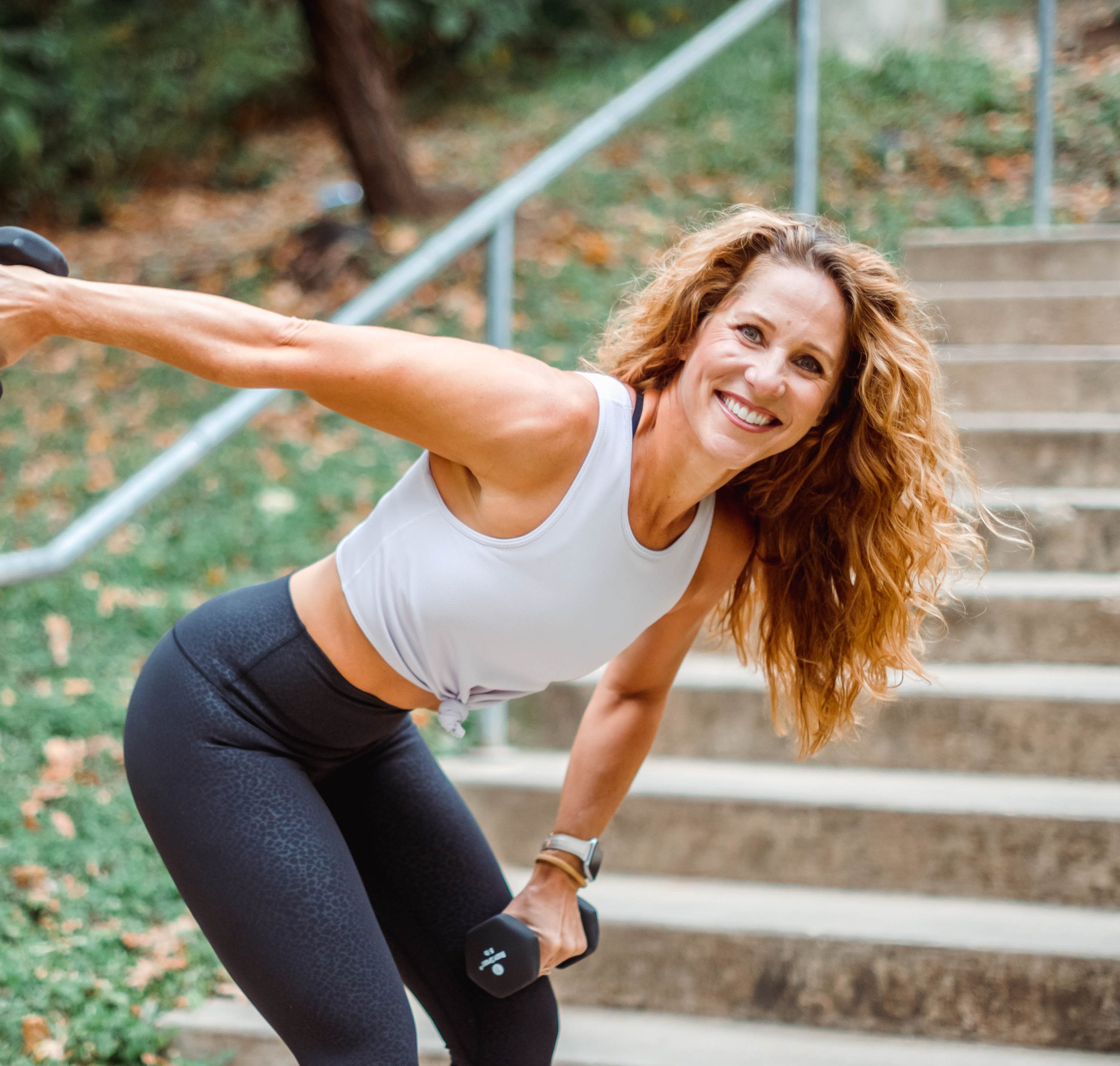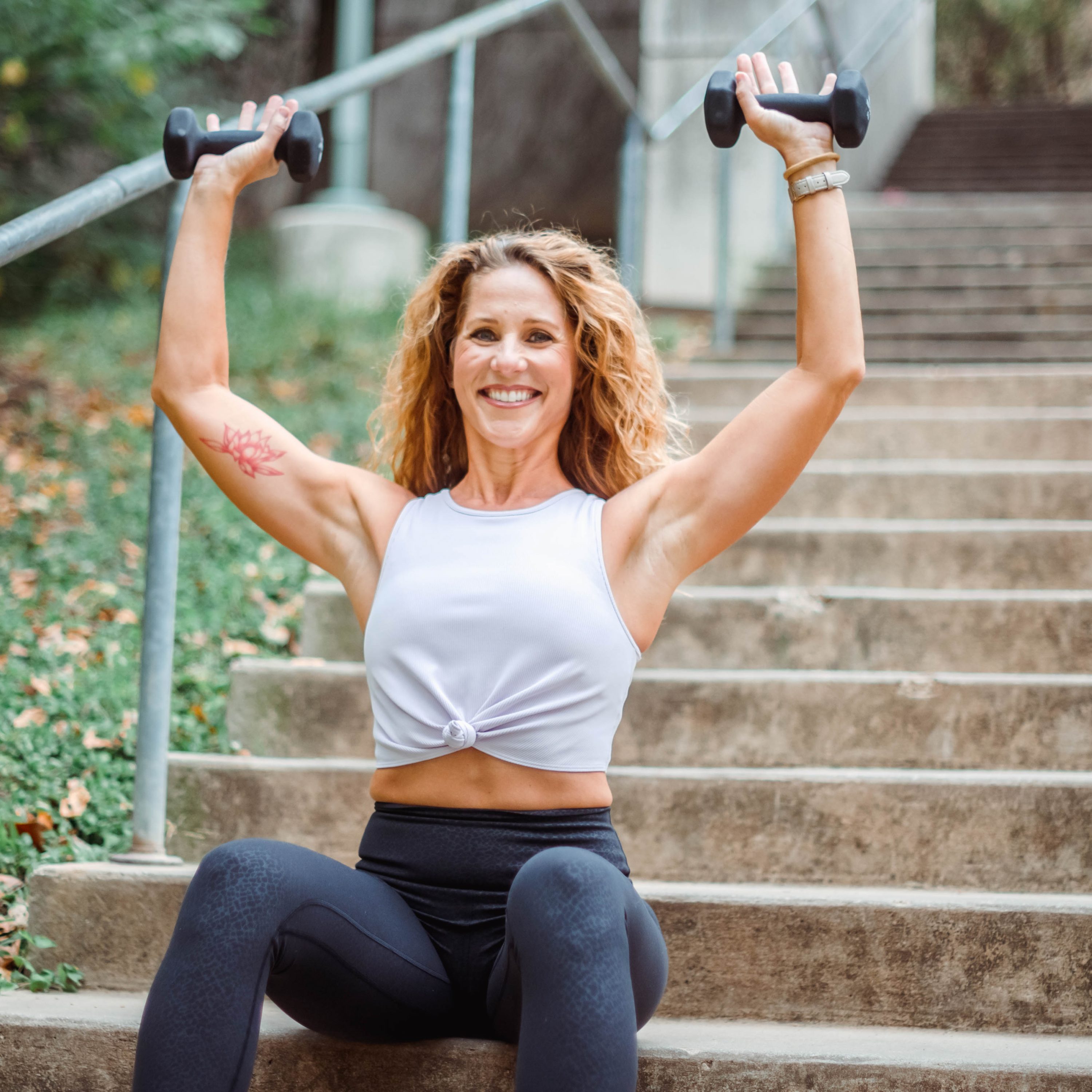
You’ll be surprised that none of the signs have to do with soreness or sweat.
If you make time and effort to fit exercise into your busy schedule, you naturally want to know if the workouts you do are paying off. As you finish each training session, you naturally wonder if you had a good workout. You reflect on everything you did, looking for reasons to feel great about what you did, or maybe reasons it wasn’t so great.
But knowing how to gauge a good workout from a bad one isn’t always easy.
When you hear people talk about whether or not they had a great workout, you’re most likely going to hear them say a couple of things:
One is that they had such a good workout because they’re so sore. Another is that they’re sweaty, so it must’ve been a great workout.
But in fact, these aren’t usually the best signs of a good workout.
There are a couple of reasons why the soreness you feel isn’t the best measure for the success of your workout.
The first is that feeling sore often depends on whether you’re new to exercise, or if you added new movements to your existing routine.
The reason soreness depends on exercise frequency is because of something called the repeated bout effect. The more often you put the same stress on your muscles, the less likely you are to feel sore because of it. This is because your muscles get used to and adapt to the kind of stress you put on them from exercise.
That doesn’t mean your workouts aren’t effective anymore. Your muscles still do work and get stronger. But your lack of soreness actually speaks to the level of conditioning you’ve achieved. Which is a great thing for your fitness, not a bad thing.
If you do get sore as a regular exerciser, it’s usually the result of progressing to a much tougher level of training than you were previously used to. Or because you introduced a new type of movement to your workout. When you engage the muscles in a brand new way, your muscles need to build up the strength and conditioning for that movement. Just like they did for the others you normally do.
The second reason is that soreness can be a sign of injury or pushing yourself too hard. If you have trouble walking for days on end or find it difficult to show up for your next workout because you’re too sore, that’s a sign your workout was too much, too fast. And if you’re a regular exerciser feeling extremely sore after every workout, this isn’t a good sign coming from your body.

More sweat doesn’t mean a better workout
It’s also very tempting to say if you left your workout drenched in sweat, that it must have been a good one. But just like soreness, it’s actually not telling you as much as you think about the quality of your workout.
It could be that you’re newer to exercising and your body is still adapting to workout intensity. Temperature and your environment also influence how much you sweat. And then there’s the fact that genetics plays a role in how much someone sweats during any workout.
The reality is that there are so many factors that determine how much you sweat that it can’t be a reliable indicator of how great your workout was.
Rather than look for how much pain you feel or how much sweat your body produced, instead reflect on aspects of your performance, your focus, your recovery, and the progress of your overall fitness. You’ll find they’re more informative and useful indicators of your fitness success.

Trainer Kristen
If you want to know how great your workout was, the first thing to do is reflect on any progress you made in your performance.
Here are some ways to see if you made progress in your workout:
Reflecting on these parts of your workout can lead you to find cause for celebration you might not have realized. Plus, when you reflect on your performance you make it clearer for yourself what you did well and what you want to improve on next time. It’s one of the best ways to be proactive and own what you’re doing in the gym.
But remember, there are other ways to gauge how effective your workout was. So if you just did a workout and didn’t notice any of those improvements, that’s okay! It’s totally normal to hit a point of slow improvement where you notice only minor changes over a period of weeks. You’re still getting stronger and you’re still making progress.>
The mind-muscle connection is when you focus on making sure the right muscles work through each rep of an exercise.
When you’re new to exercise, there are a lot of factors that make focusing on form and mind-muscle connection extremely difficult. Your balance and stability foundation hasn’t been built. You’re still building your conditioning and you find yourself out of breath easily. All of this makes it hard to focus on anything but just getting through the motions, even if form isn’t great and the right muscles aren’t engaging.
But as you progress and build your overall fitness level, you’ll find that you can focus more on correct form and engaging the muscles you know need to be engaged for each movement.
When you do a lunge, for example, you can focus on feeling your glutes, hamstrings, and quads working in the movement. As you build your mind-muscle connection you can tell more easily if the exercise is having the effect that you want on those muscles.
So if you’ve been exercising for a while, reflect back on your most recent workout. Did you specifically take note of the right muscles firing? If they were, your workout was a good one.
Exercise is a known and natural mood enhancer. You get those endorphins rushing which is why you might notice yourself feeling superb after a good workout. Plus you get the extra confidence boost that comes from accomplishing a challenging task
So this is one of the easiest ways to tell if you had a great workout—if you feel fabulous and like you could take on the world after you exercise, then your workout was effective.

Exercise improves your sleep.
In the vast majority of studies about sleep and exercise, researchers found that exercise improves your sleep. So if you find that you’re sleeping sounder throughout the night, then your workouts are effective.
This doesn’t mean you need to be completely exhausted at the end of each workout or every night. In fact, regular exercise actually elevates your overall energy. But sleeping well is a sign your body did plenty of work and needs to recover.
When you have a great workout and feel great after—you look forward to the next one.
Exercise is about challenging yourself, but not driving yourself to extremes that leave you dreading the next workout for fear it’ll be too hard, too exhausting, and just not fun.
It’s also hard to look forward to the next workout if you’re too sore from the last one.
Some days you’ll be able to push your body harder, and other days you’ll need to take it slower. Remember to listen to your body and follow a rhythm that keeps you invested, challenged, and excited for your next workout.
As you finish your next workout, reflect on how you performed, how you feel, and how you recover. You’ll likely find a real reason to celebrate your workout that has nothing to do with how much pain you feel—which is a major win.
And if you want to be proactive, choose one way you want to make progress or focus on your mind-muscle connection in your next workout. Maybe you want to focus on the way your chest and shoulders engage in a pushup. Or on keeping proper form for as long as possible during your planks.
But even if you reflect back and don’t think you had a great workout, that’s okay too. The thing about training is that, like anything else, there are good days and bad days. One lackluster round of exercise doesn’t mean the next one will be the same.
The key is to think about the quality of your workouts as motivation to keep going, not as a punishment. So keep on going and don’t worry about how sore and sweaty you get. There’s so much more to take away from your workouts! Let’s do this, guys!

Workouts that land in your inbox 5 days a week! The link takes you straight to the TK Forum and prompts you to get moving!
Design your own workout routines from Kristen’s extensive library of videos.
TK offers a Low Impact HIIT option – in addition to a medium or high impact – on every day that your emailed workout includes a HIIT video. This way to can listen to your body and decide which intensity level is best for you each day!